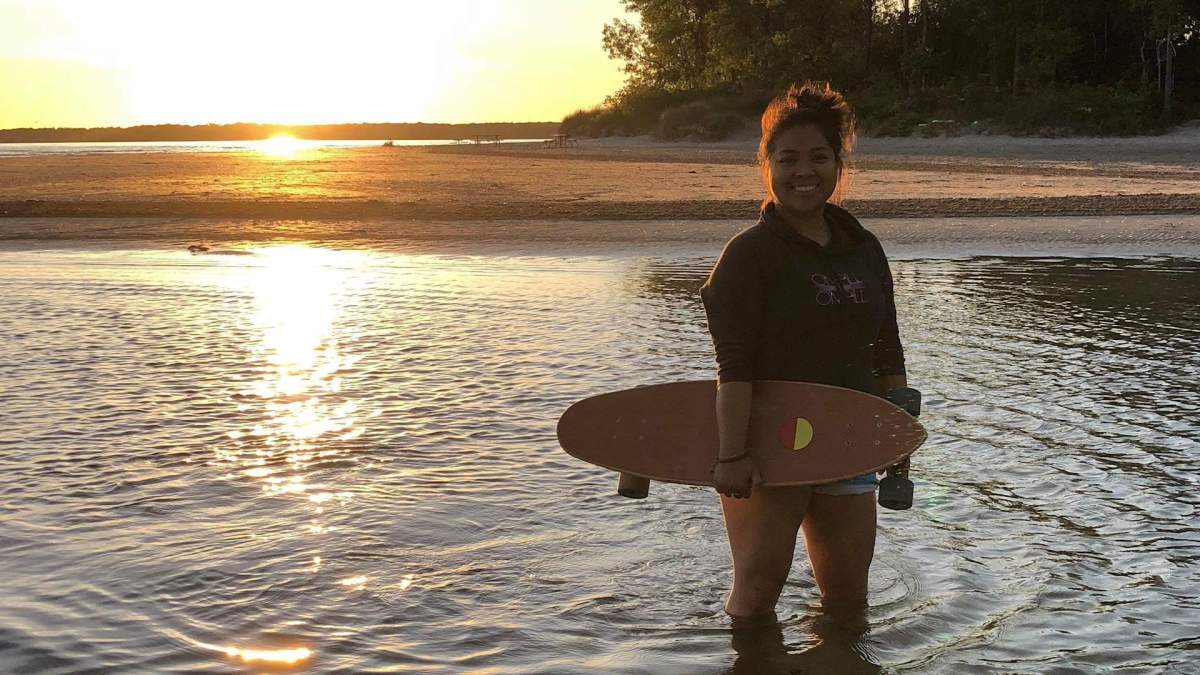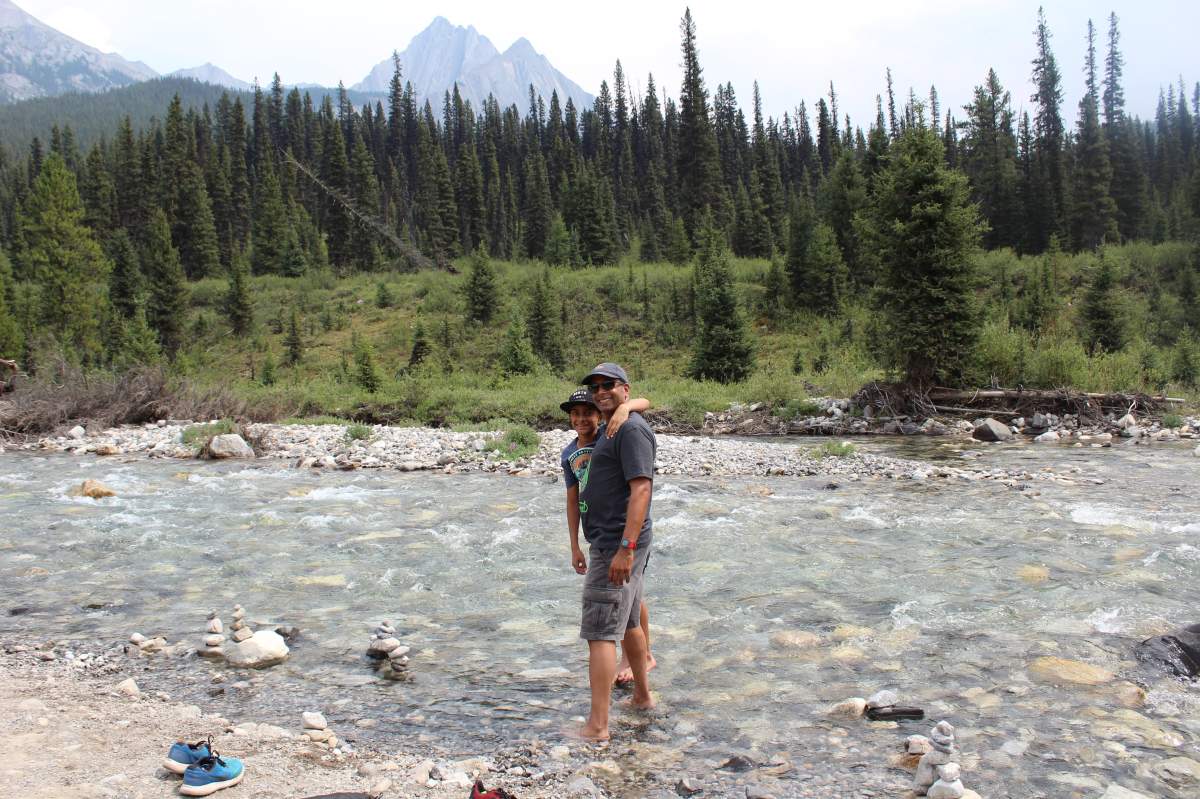Robin Pacquing has been surfing in Ontario for more than a decade.

The 38-year-old realtor of Pickering, Ont., has loved large bodies of water since she was a kid, something she can thank her parents for.
“My family was very outdoorsy, even in the cold,” she told Global News. “My parents came from the Philippines and thought it was important to learn how to be outdoorsy. My dad even taught us how to ski.”
Pacquing is one of many Canadian people of colour who enjoys spending time outdoors all-year round, but after a recent announcement on the lack of diversity in advertising by Mountain Equipment Co-op (MEC), one of Canada’s largest outdoor gear retailers, it seems like businesses are only starting to notice.
READ MORE: MEC CEO addresses lack of diversity, inclusion in advertising
‘Do white people dominate the outdoors?’
On Monday, MEC CEO David Labistour wrote an open letter on the company’s website, asking Canadians if “white people dominate the outdoors.”
“If you consider every advertisement you’ve ever seen for skiing, hiking, climbing and camping, you might think that’s the case. It isn’t true at all and it’s part of a bigger problem,” the statement noted.
He added without acknowledging the past, the company can’t move forward to making better decisions around casting and advertising.
WATCH: Planning on going camping? Here are 8 safety tips to keep in mind

“Historically, the models we’ve used in our catalogues and campaigns and on mec.ca have been predominantly white. And this imagery has perpetuated the vastly incorrect notion that people of colour in Canada don’t ski, hike, climb or camp,” he continued. “This letter is about recognizing the role we’ve played in underrepresenting people of colour in the outdoors, and committing to change. It’s not OK.”
On top of hiring diverse people and using a range of athletes for branding, the company also committed to a feedback section for people to help create lasting strategies of change.

Get breaking National news
Representation matters, but it’s not trendy
Pacquing said although the face of surfing has changed since she first started, she can firmly say it is more diverse — but this wasn’t the case when she was growing up.
“I never thought people of colour weren’t interested in surfing… but in the media and in surfer magazines, surfer girls were blond and white,” she continued.
Karim Kanji is also a lover of the outdoors. The 45-year-old from Scarborough, Ont., goes on four to five camping trips with Scouts every year and at least one more time with his family. He has also been an avid hiker since the ’70s.
And while he doesn’t believe in the assumption that people of colour don’t like the outdoors, he thinks change takes a lot more than a company shifting its mandate.
READ MORE: U of T to offer sports and sexual diversity course
He added with the news of Colin Kaepernick partnering with Nike (and profiting from it), it seems like focusing on diversity may be a “bandwagon” topic. The focus, he added, should be about mobilizing communities in underserved parts of cities to get more involved outdoors.
Park People in Toronto, he said, already does this, and these are the organizations that need support.
“No amount of PR from MEC and the like will move the needle.”
Getting all Canadians involved in physical activity
Another organization is West Neighbourhood House in Toronto, a social services agency that aims to get new Canadians involved in organized physical activity, among other things. West Neighbourhood House has programming specifically for youth, and their recently created running group has been successful in recruiting newcomers of all abilities — including those who never considered the sport before.
“A lot of times newcomers come to the country and they’re facing feelings of isolation and loneliness,” Yasmin Moursalien, the team lead of West Neighbourhood House’s Newcomer Program, told Global News. “By creating groups for physical education, they’re able to connect with other newcomers, meet new friends, practice their English skills and expand their social skills.”
The running program started in 2017 when West Neighbourhood House partnered up with local running group Parkdale Road Runners to start a girls-only club. Since then, the club has become co-ed, offering even more youth a sense of community and support.
Providing accessible ways for new Canadians to get involved in sport is important, Moursalien said, not only because it positively affects their self-esteem, but also because they’re not often represented in mainstream advertising.
When there’s little diversity in advertising for outdoor companies like MEC, it can discourage people from pursuing a sport, Moursalien said.
READ MORE: New service aims to open up private property to camping
“It goes back to the feelings newcomers face: they face isolation, loneliness and being invisible,” Moursalien explained.
“And whether it’s at school, at work or walking down the street, these are feelings they encounter. If there’s an interest in a hobby, or something they enjoy doing, they should never have to have that feeling of being invisible or not represented.”














Comments
Want to discuss? Please read our Commenting Policy first.